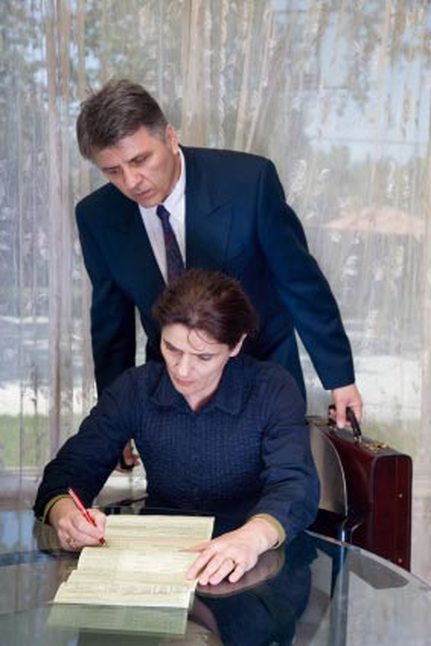Divorce and Separation
DIVORCE PROCEEDINGS TO DECREE ABSOLUTE
There is one ground for divorce which is that the marriage must have broken down irretrievably. This can be evidenced by one or more of five facts:
There is one ground for divorce which is that the marriage must have broken down irretrievably. This can be evidenced by one or more of five facts:
- Adultery
- Unreasonable behaviour
- Desertion
- Two years separation with consent
- Five years separation
|
We aim to deal with the whole divorce process in accordance with the Law Society’s Family Law Protocol which is designed to ensure that the process is conducted in as amicable spirit as possible.
We will draft the petition in accordance with your instructions and the guidelines of the Protocol and then issue the petition in the regional Divorce Centre. We will make the Application for Decree Nisi on your behalf and ultimately an Application for Decree Absolute. If you have children you will also need to complete a form called a Statement of Arrangements in which you tell the court what plans you have made for the children after divorce. We will then report to you with the response of your spouse and draft the affidavit required by the Court in support of your divorce petition. This affidavit is then submitted to the Court in support of an application seeking the Court’s confirmation that the grounds for divorce have been met. Assuming the Court is so satisfied, a hearing date for the pronouncement of a "decree nisi" is given. However it will only be in the rarest of circumstances that you would need to attend this hearing. We will send you a copy of the "decree nisi" and, once the statutory period of six weeks has elapsed, application for the decree to be made absolute can be made. The whole process outlined above should normally take approximately six months, providing your spouse co-operates. You remain married until Decree Absolute is granted. |
JUDICIAL SEPARATION
From time to time there may be a client who has a reason for not going through the above process but whose marriage in all other respects has similarly broken down. This may be on account of religious beliefs or cultural practices. In such a case the Court does not have to be satisfied that the marriage has broken down irretrievably. Essentially the process is the same as for a divorce except that the marriage is not dissolved but rather the Court orders that the parties live separately and apart.
From time to time there may be a client who has a reason for not going through the above process but whose marriage in all other respects has similarly broken down. This may be on account of religious beliefs or cultural practices. In such a case the Court does not have to be satisfied that the marriage has broken down irretrievably. Essentially the process is the same as for a divorce except that the marriage is not dissolved but rather the Court orders that the parties live separately and apart.
|
NULLITY
There are a number of circumstances in which a marriage can be brought to an end by annulment rather than divorce or judicial separation, for example:
|
DISSOLUTION OF CIVIL PARTNERSHIPS
The Civil Partnership Act of 2004 came into force on 5th December 2005. This enables same sex couples to obtain legal recognition of their relationship.
Such a relationship can be dissolved in a similar way to divorce. As in divorce the civil partnership must have lasted at least one year and must have broken down irretrievably.
We can assist you with the completion of the petition and take you through all stages of the process up to the making of a conditional order by the court and subsequently a final Order of Dissolution.
The Civil Partnership Act of 2004 came into force on 5th December 2005. This enables same sex couples to obtain legal recognition of their relationship.
Such a relationship can be dissolved in a similar way to divorce. As in divorce the civil partnership must have lasted at least one year and must have broken down irretrievably.
We can assist you with the completion of the petition and take you through all stages of the process up to the making of a conditional order by the court and subsequently a final Order of Dissolution.
|
BREAKDOWN OF RELATIONSHIPS/DEEDS OF SEPARATION
There may be circumstances in which a married couple may choose not to or may be unable to invoke divorce proceedings when their relationship breaks down. We are able to advise them of the steps they should take to protect their interests and to assist them with negotiations leading to an agreement as to the basis on which they will separate. This may involve helping with issues concerning any children from the relationship and the division of any property. Upon agreement we will draw up a deed of separation incorporating all the agreed terms. This may provide for the institution of divorce proceedings in the future. |
MEDIATION
As an alternative course of action we often refer clients to Mediation. This is a process whereby the parties can openly discuss any issues in dispute such as children and the division of property with the help of a qualified mediator. The purpose of the Mediator is to assist the parties to resolve their differences by negotiation and agreement. Throughout this process we remain in the background ready to give advice upon any proposed terms of agreement if requested by our client.
As an alternative course of action we often refer clients to Mediation. This is a process whereby the parties can openly discuss any issues in dispute such as children and the division of property with the help of a qualified mediator. The purpose of the Mediator is to assist the parties to resolve their differences by negotiation and agreement. Throughout this process we remain in the background ready to give advice upon any proposed terms of agreement if requested by our client.
To make contact and address your issue please:





